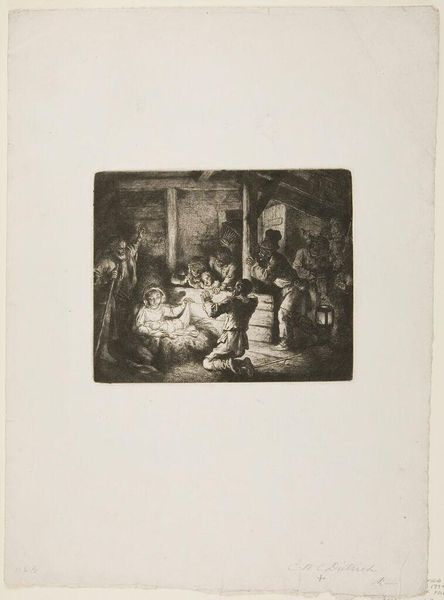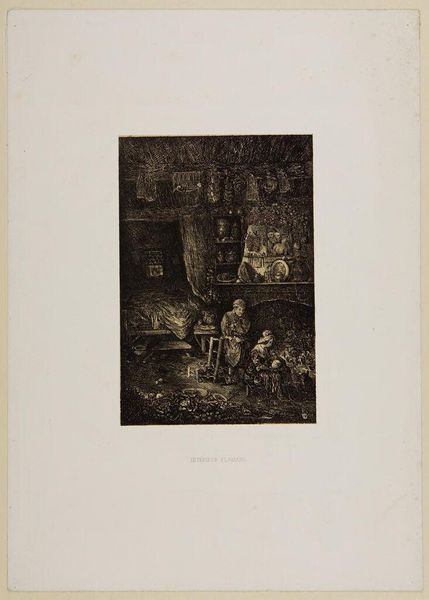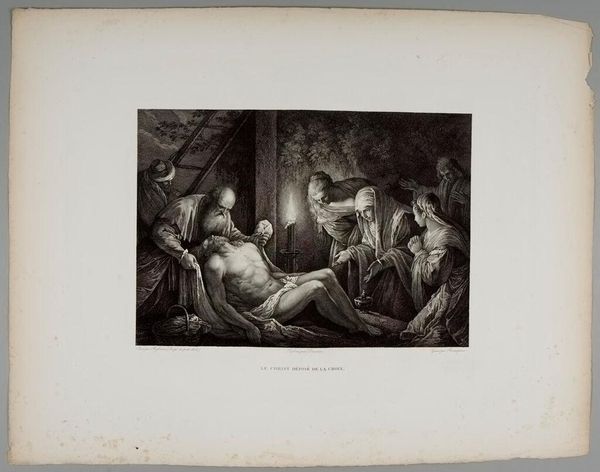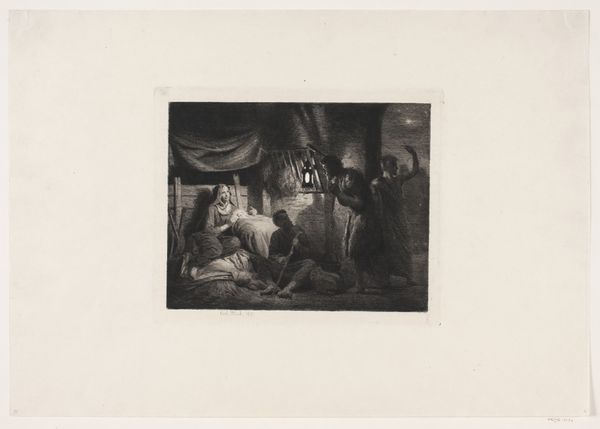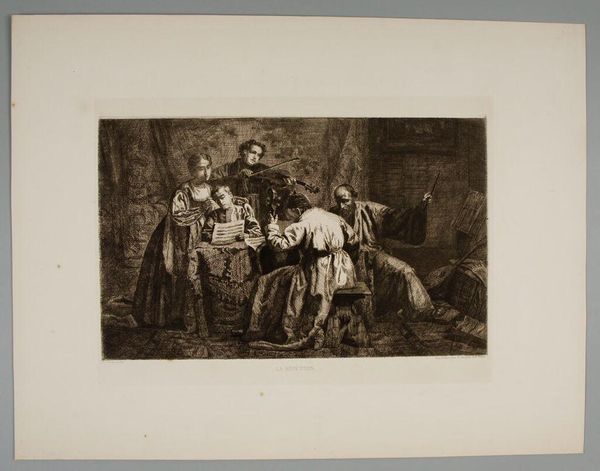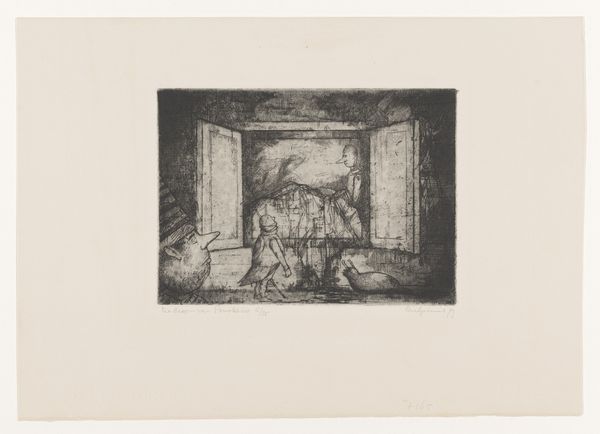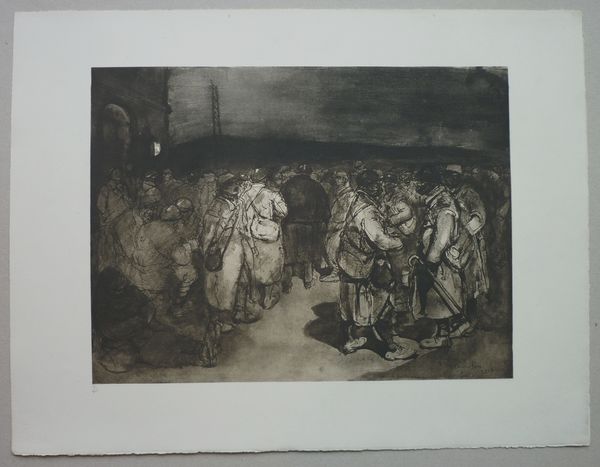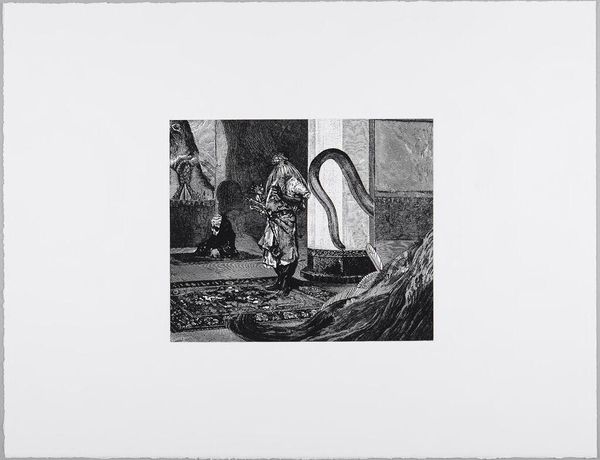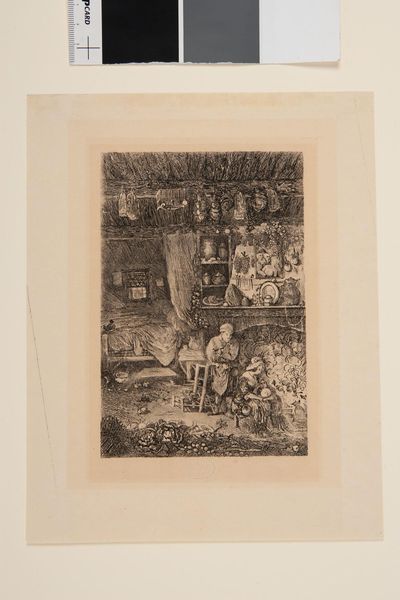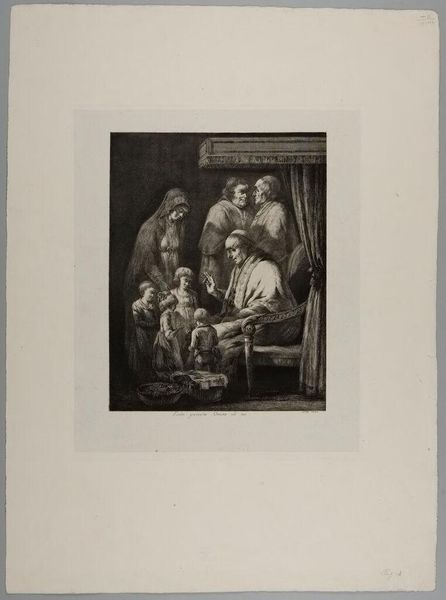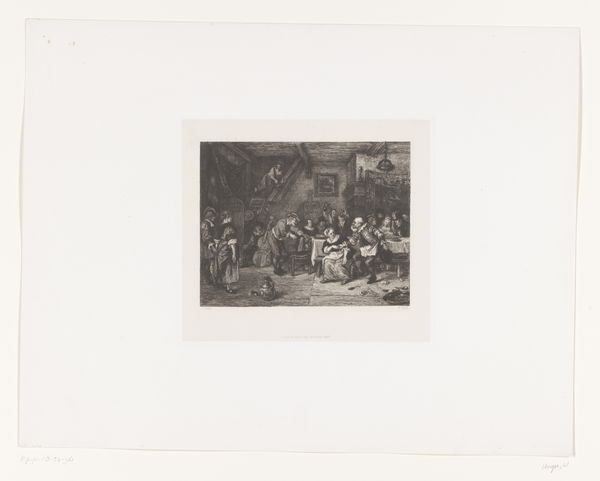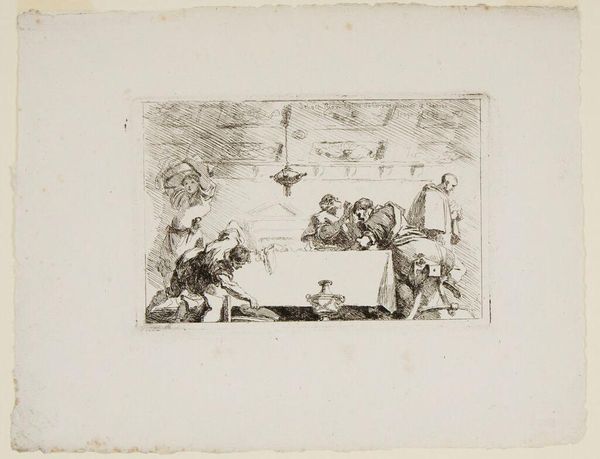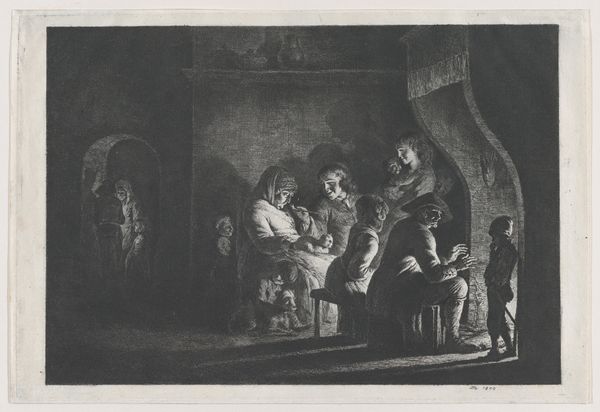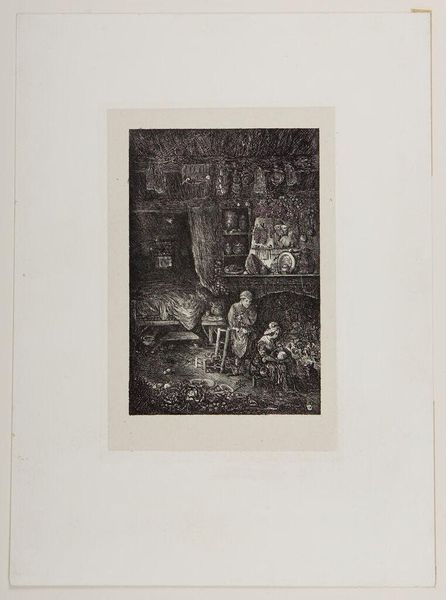
Dimensions: Image: 22.2 Ã 32.5 cm (8 3/4 Ã 12 13/16 in.) Plate: 24 Ã 36 cm (9 7/16 Ã 14 3/16 in.) Sheet: 42.2 Ã 59.5 cm (16 5/8 Ã 23 7/16 in.)
Copyright: CC0 1.0
Editor: Jean Jacques de Boissieu's "Village Party," a print from the 18th century, feels like a glimpse into a private world, lit by candlelight. What can you tell me about how it reflects its time? Curator: Certainly. Consider how prints like this circulated. They weren't just art; they were a form of social currency. Boissieu's skill made imagery accessible, democratizing art viewing for a rising middle class, who found in these scenes reflections of their own aspirations and anxieties. Editor: So, it's less about the literal scene and more about what it represented to viewers? Curator: Precisely. The "Village Party" becomes a stage for projecting social values, domestic ideals, and even class distinctions. It invites us to consider what stories were being told and who had access to them. Editor: That makes me see it in a whole new light! It’s more than just a party scene; it's a mirror reflecting societal shifts. Curator: Exactly! And that is what makes art so powerful.
Comments
No comments
Be the first to comment and join the conversation on the ultimate creative platform.
